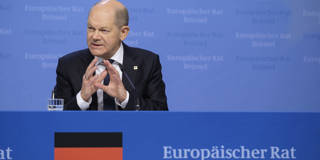EU member states’ widely divergent responses to surging gas and electricity prices are inappropriate for addressing what is obviously a common European challenge. With winter fast approaching, the absence of common guidelines for national energy policies should be regarded as an economic emergency.
PARIS – Eight months after the Russian invasion of Ukraine, the European Union remains woefully divided on its energy-policy response. At their latest summit, on October 20-21, the leaders of EU member states spent hours arguing with each other. In the end, they issued an official communiqué merely acknowledging that “in the face of Russia’s weaponization of energy, the European Union will remain united to protect its citizens and businesses and take the necessary measures as a matter of urgency.” But the only significant decision they had reached was to step up joint gas purchases – and even that came with crippling caveats.

PARIS – Eight months after the Russian invasion of Ukraine, the European Union remains woefully divided on its energy-policy response. At their latest summit, on October 20-21, the leaders of EU member states spent hours arguing with each other. In the end, they issued an official communiqué merely acknowledging that “in the face of Russia’s weaponization of energy, the European Union will remain united to protect its citizens and businesses and take the necessary measures as a matter of urgency.” But the only significant decision they had reached was to step up joint gas purchases – and even that came with crippling caveats.